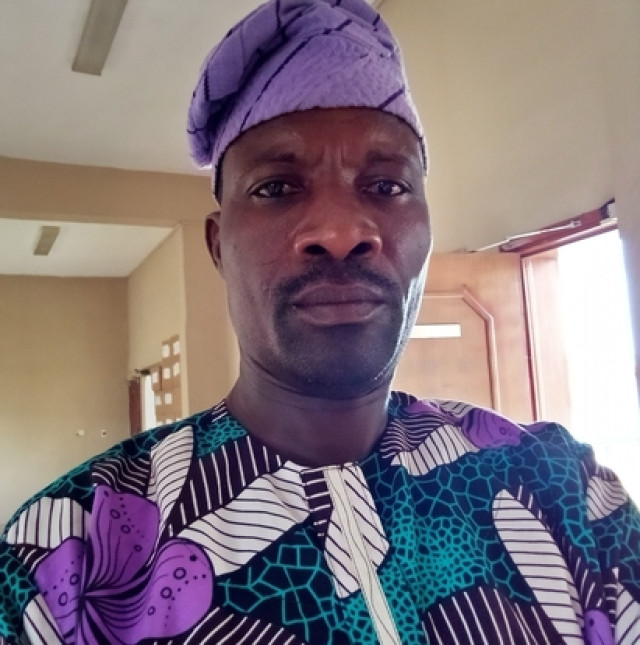Mr Ojo Olushola Oguntayo is currently the Director of Archives, at Lagos State Records and Archives Bureau (LASRAB). In this interview, he shares his thoughts on the eroding nature of traditional libraries, in the spate of digital libraries. Excerpt:
Could you share your thoughts on how students perceive the use of traditional libraries versus digital libraries in today's age?
In recent years, we have seen a shift in how students perceive and use traditional libraries compared to digital libraries. Traditionally, libraries have been seen as places for quiet study, research, and physical access to books and resources. However, with the advent of digital libraries, students now have access to a vast array of information at their fingertips, from e-books to online databases.
How do you believe this shift impacts students' learning experiences?
The shift from traditional to digital libraries has transformed how students engage with information and learning resources. Digital libraries offer convenience, speed, and the ability to access a wide range of materials from anywhere with an internet connection. This can enhance students' learning experiences by providing real-time updates, interactive materials, and multimedia resources catering to different learning styles.
This shift has also helped students' learning experiences in the sense that digital libraries have highly influenced major operations of libraries, such as access to the collections via OPAC, multiple formats of information sources available to users, search for information, and performing routines in an error-free and seamless manner, enhances access to information, strengthens and hi expedites information retrieval, facilitates information search, improves innovation and creativity among others.
What are some of the advantages of digital libraries over traditional libraries, especially in a fast-paced environment like Lagos State?
Digital libraries offer several advantages over traditional libraries, particularly in a dynamic environment like Lagos State. One significant advantage is the ability to access information remotely, which is crucial for students who may not have easy physical access to traditional libraries due to transportation or time constraints. Digital libraries also offer a more extensive collection of resources, including updated materials and multimedia content that cater to diverse learning preferences. Some of the advantages of digital libraries include but are not limited to the following:
• Allowing easy integration of various activities
• Facilitates cooperation and formation of the library network
• Helps to increase the range of services offered
• It may save and /or generate money
• Provides more up-to-date information
• Provides unlimited information from different sources.
How can traditional libraries adapt to the changing needs of students in the digital age?
Traditional libraries can adapt to the changing needs of students in the digital age by incorporating digital resources and technologies into their existing infrastructure, which includes offering online databases, e-books, and digital archives alongside physical collections. Additionally, libraries can provide access to e-learning platforms, virtual workshops, and online tutorials to enhance students' research and learning experiences.
Traditional libraries can also adapt to the changing needs of students in the digital age by funding ICT infrastructures, Steady Power supply, planning towards the digitising of paper-based records and ensuring library staff are trained and equipped with technical IT knowledge.
Do you think there is still value in maintaining traditional libraries alongside digital libraries?
I believe there is tremendous value in maintaining traditional libraries alongside digital libraries. Traditional libraries offer a unique learning environment that promotes focus, reflection, and community engagement. They provide spaces for in-depth research, physical interaction with materials, and opportunities for face-to-face communication with librarians. By preserving traditional libraries, we can ensure that students have access to a variety of learning experiences that cater to different preferences and needs.
For effective digital libraries to be sustained traditional libraries must be jealously and catered for together with digital libraries, they need to be operated side by side. They must go Parri-pass but as time go there will be a need to focus on digital libraries and try to do away with traditional libraries. It must be a gradual process and not otherwise.
How can institutions like Lagos State Records and Archives support students in navigating the transition from traditional to digital libraries?
Institutions like Lagos State Records and Archives can support students in navigating the transition from traditional to digital libraries by providing training, workshops, and resources that help students develop digital literacy skills. This could include teaching students how to effectively search for information online, critically evaluate digital sources, and cite digital materials properly. Additionally, institutions can offer guidance on using online databases, e-books, and multimedia resources to enhance students' research and learning experiences.
In your opinion, what role do digital libraries play in preserving and sharing the cultural heritage of Lagos State?
Digital libraries play a crucial role in preserving and sharing the cultural heritage of Lagos State by digitizing and making accessible historical records, artefacts, and archival materials. By creating digital archives, institutions can ensure the long-term preservation of cultural heritage for future generations while also increasing public access and engagement with these materials. Digital libraries provide a platform for preserving and sharing the rich history and heritage of Lagos State in innovative and interactive ways that appeal to a diverse audience. Recently, the Lagos State government has launched a wonderful program tagged: Help Preserve Lagos History where the bureau solicits donations of Artifacts to the Lagos State Records and Archives Bureau through various digital platforms like Facebook, Instagram, Twitter and YouTube among others to preserve and share common patrimony from going into extinction.
Is there anything else you would like to add?
As we continue to navigate the digital age, institutions like Lagos State Records and Archives need to adapt to students' changing needs while preserving our state's rich cultural heritage. By embracing digital technologies and maintaining the value of traditional libraries, we can create a more inclusive and dynamic learning environment for all. I encourage students to explore the diverse resources available to them in both traditional and digital libraries




















